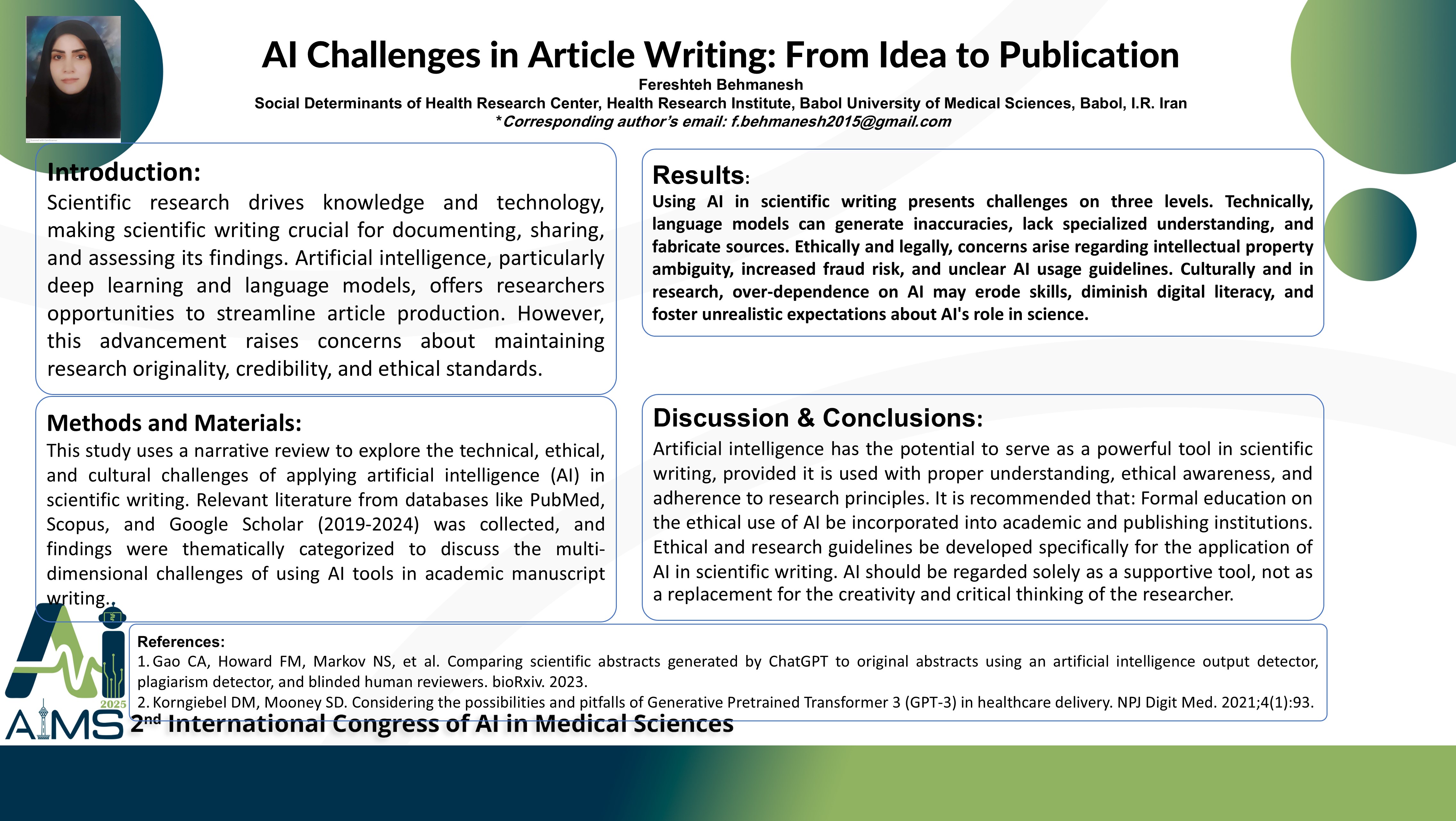چالش های هوش مصنوعی در مقاله نویسی: از ایده تا انتشار
کد: G-1814
نویسندگان: Fereshteh Behmanesh * ℗
زمان بندی: زمان بندی نشده!
برچسب: سیاست گذاری، قانون گذاری و مدیریت سلامت در حوزه هوش مصنوعی
دانلود: دانلود پوستر
خلاصه مقاله:
خلاصه مقاله
Background and aims: Scientific research drives knowledge and technology, making scientific writing crucial for documenting, sharing, and assessing its findings. Artificial intelligence, particularly deep learning and language models, offers researchers opportunities to streamline article production. However, this advancement raises concerns about maintaining research originality, credibility, and ethical standards. Method: This study employs a narrative review methodology to explore the key technical, ethical, and cultural challenges associated with the application of artificial intelligence (AI) in scientific writing. Relevant literature was collected through a comprehensive search of databases such as PubMed, Scopus, and Google Scholar using keywords including “AI in scientific writing,” “GPT challenges,” “ethical implications of AI,” and “AI-generated content.” Publications from 2019 to 2024 were considered to ensure the inclusion of the most recent developments. Articles were selected based on their relevance, credibility, and focus on issues related to AI-generated academic content. The findings were synthesized and categorized thematically to present a structured discussion on the multi-dimensional challenges of using AI tools in the process of writing academic manuscripts. Results: Using AI in scientific writing presents challenges on three levels. Technically, language models can generate inaccuracies, lack specialized understanding, and fabricate sources. Ethically and legally, concerns arise regarding intellectual property ambiguity, increased fraud risk, and unclear AI usage guidelines. Culturally and in research, over-dependence on AI may erode skills, diminish digital literacy, and foster unrealistic expectations about AI's role in science. Conclusion: Artificial intelligence has the potential to serve as a powerful tool in scientific writing, provided it is used with proper understanding, ethical awareness, and adherence to research principles. It is recommended that: Formal education on the ethical use of AI be incorporated into academic and publishing institutions. Ethical and research guidelines be developed specifically for the application of AI in scientific writing. AI should be regarded solely as a supportive tool, not as a replacement for the creativity and critical thinking of the researcher.
کلمات کلیدی
Artificial Intelligence, Essay Writing, Scientific Writing
